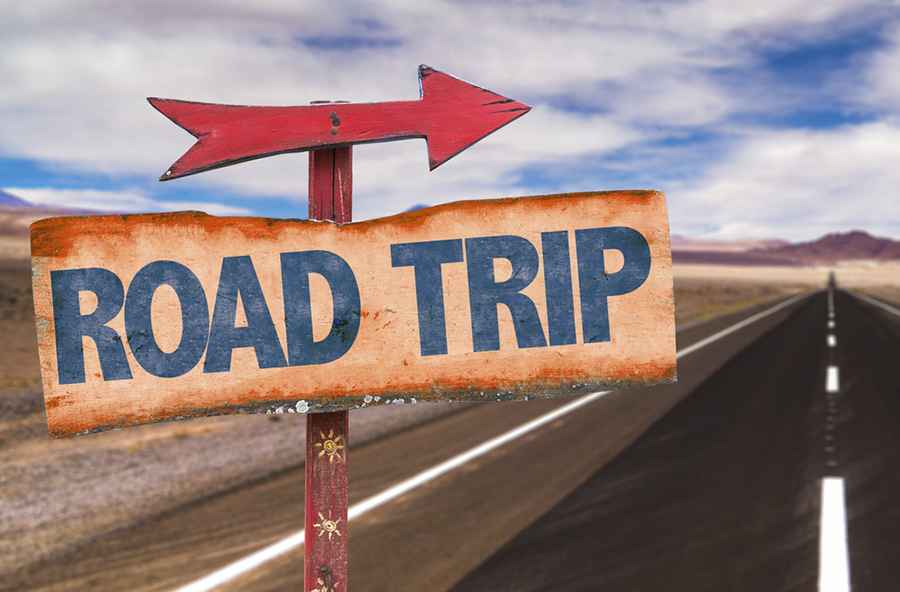5 Essential Road Travel Tips You Might Not Know
Preparation for a remote road trip goes far beyond simple safety; it is about self-sufficiency. When you are driving routes with "no services" for hundreds of miles, a flat tire, a fuel shortage, or a navigation error isn't just an inconvenience—it's a critical logistical challenge that requires a professional approach.

| Remote Route Logistics Checklist | |
|---|---|
| Fuel Safety | The 1/4 Tank Rule + Auxiliary Supply |
| Navigation Security | Ghost Landmark Protocol |
| Medical Grade | Trauma Kit / Survival Meds |
| Recovery Plan | Offline Locksmith & Towing Contacts |
1. Strategic Fuel Management and Driver Alertness
In remote territories, gas stations can be unreliable, closed, or hundreds of miles apart. Maintaining a strategic fuel reserve is essential for survival.
- The Quarter-Tank Rule: Never let your fuel drop below 1/4 of a tank. Unexpected road closures, flash floods, or landslides can force 50-mile detours or hours of idling that you didn't account for in your initial plan.
- Physiological Logistics: Frequent stops are not just for rest; they prevent fatigue and medical issues like blood clots (DVT) during long-haul drives. An alert driver is the best safety feature of any vehicle.
2. GPS Privacy: The "Ghost Landmark" Protocol
For personal and vehicle security, experts recommend never programming your exact home or hotel address into a mounted GPS unit. If your vehicle is stolen or broken into, having your exact residence stored as "Home" puts your property at risk of a subsequent burglary.
- The Solution: Use a nearby public landmark (a 24-hour gas station or a grocery store a few blocks away) as your "Home" or "Hotel" point. You will know the way from there, but your private data remains protected.
3. Beyond the Basic First Aid: Road Survival Kits
A standard store-bought first aid kit is designed for minor household cuts, not road emergencies. A technical road kit should be more robust, functioning as a "go-bag" for medical survival.
- Technical Contents: Ensure your kit includes trauma dressings, tourniquets, and at least a 3-day supply of essential personal medications (such as inhalers or EpiPens).
- Expiration Audit: Before every major expedition, audit your kit for expired antiseptics and ensure all sterile packaging is intact.
4. Establishing a "Checkpoint Protocol" with Outside Contacts
Before entering "dead zones"—areas with zero cellular coverage—it is vital to establish a communication protocol with a trusted contact. This ensures that help can be dispatched to the correct location if you fail to emerge from a remote track.
- The Plan: Inform them of your exact highway or forest service road number and your expected "check-in" milestones. If you miss a deadline, they can provide emergency services with a specific search corridor, drastically reducing rescue time.
5. Mechanical Self-Reliance and Emergency Services
True preparation includes having a plan for mechanical failures that you cannot fix on the shoulder of the road. This involves more than just a roadside assistance card.
- Offline Resources: Before leaving, save the contact information for regional 24-hour locksmiths and heavy-duty towing services in your phone’s offline notes. In remote areas, being able to reach a professional via low-signal SMS or satellite messenger can be the difference between a minor delay and being stranded for days.
Final Thoughts on Road Preparedness
Driving the world's most challenging roads is a rewarding experience that requires a professional mindset. Every mile counts, and every decision—from fuel management to data security—shapes the outcome of your journey. Stay prepared, stay alert, and respect the road.
Image credit: Depositphotos